How to Get Rid of Raccoons: 10 Proven Ways
-
Pete Ortiz
- Last updated:

Raccoons are found all over the country except in the southwestern states and some parts of the Rocky Mountains. Like other species, they play a crucial role in the ecosystem, maintaining prey populations and dispersing seeds when foraging.
However, they may not be very pleasant to have in or around your home.
Raccoons will rummage through your trash, destroy your lawn, and raid your home, all for a quick bite. Some go as far as moving into your chimney or attic. If you’re sick and tired of these little mammals invading your home, you’re in the right place. Here are a couple of foolproof steps for getting rid of raccoons.
The 10 Proven Ways for Getting Rid of Raccoons
1. Spray Raccoon Repellent on Raccoon Hotspots
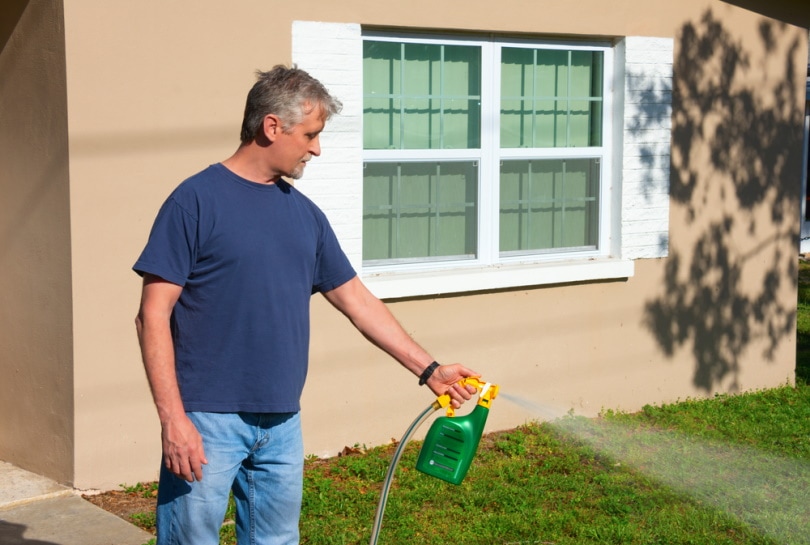
Spraying raccoon repellent is among the best ways to get rid of raccoons in your home. Raccoons use a strong sense of smell to sniff out prey, food, and potential mates. However, their strong olfactory sensitivity also makes them overly sensitive to pungent smells.
Douse your yard, ceiling, and garbage area with raccoon repellent to keep these small mammals away. If you’re a DIY person, you can create the repellent yourself.
- A large spritz bottle
- A small bottle of hot sauce
- Mild dishwashing soap
Pour the entire bottle of hot sauce and the dishwashing soap into the spritz bottle. Shake the bottle to mix up all the content, and you’re good to go. Spray the concoction everywhere you suspect the raccoon’s visit. The intense smell will deter the animals from getting any closer.
Using a mixture of cayenne pepper, chopped jalapeno, and water can also be effective. However, you’ll have to boil the spices in water for about 20 minutes before you can use the spray. Ordinary pepper spray can also act as a great substitute for the same.
2. Seal Your Chimney
Chimneys are an excellent nursery for raccoon mothers looking for a warm, safe place to wean their babies. This is especially true for homes with chimneys surrounded by trees or other lofty climbable structures.
The only way to keep mother raccoons out of your chimney is by sealing it. But first, you’ll want to check whether there’s an animal in the chimney. If unsure, it is best to call a pest control expert to check. Only then can you install a spark arrestor or a chimney cap to seal your chimney.
3. Place Ammonia Strategically Around Your Home
Remember how raccoons are sensitive to strong smells? Well, ammonia leverages the raccoons’ odor sensitivity to your advantage.
Soak old clothes or rags in ammonia, then place them near the raccoon’s play site. You could also place ammonia balls inside your trash cans or in the attic. Raccoons will take a whiff of the ammonia and make a U-turn.

4. Get Rodent Repellent Trash Bags
While minty-fresh trash bags are pleasant to us, they’re a nightmare for raccoons and other rodents. Again, here we’re using the raccoon’s super-sensitive nose to our advantage. Rodent-repellent trash bags utilize a blend of essential mint oils to smell fresh while in the house and to deter rodents when outside.
5. Seal Your Trash Cans
Raccoons typically ransack trash cans for food, which isn’t really a big deal. The only problem is that they don’t clean up after themselves, leaving you to take care of the mess.
The best way around this is to seal your trash cans. That way, they can’t open them to rummage for food. They might stick around for a while but will eventually abandon your trash cans for greener pastures.
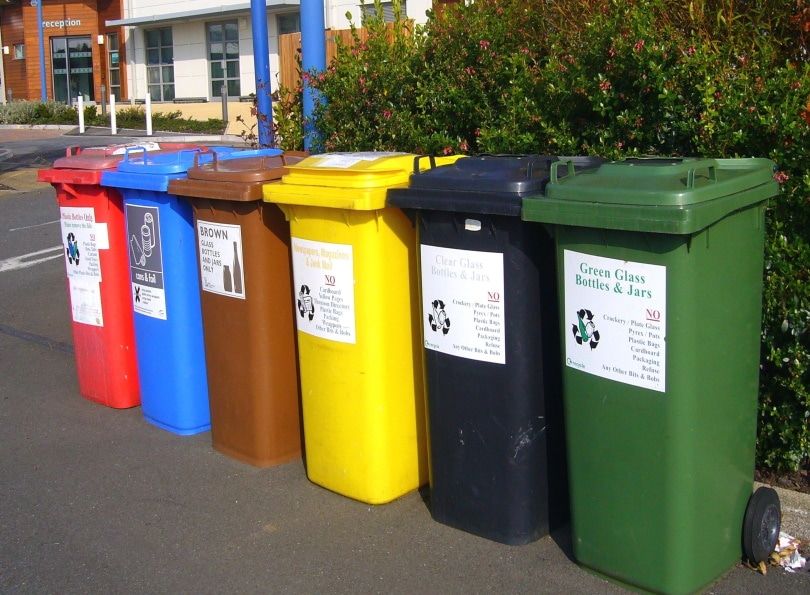
6. Keep Food Inside the House
There’s a reason why raccoons are known as masked bandits. They’ll make off with anything edible they find. As such, it’s important to keep all your food inside the house. This includes groceries, pet food, and even bird feed.
The problem with keeping food outside is that raccoons will quickly sniff it out and gather where it is. Soon enough, they’ll make your home theirs too.
7. Seal Any Holes Around Your House
Although quite chunky, raccoons can squeeze into tight spaces to get into your home. These include any holes in the roof, walls, or attic.
To keep raccoons out, make sure you seal all the holes you find around your house. However, first, check whether there are any raccoons inside where these holes lead. The last thing you want to do is to trap a bunch of raccoons inside your home.
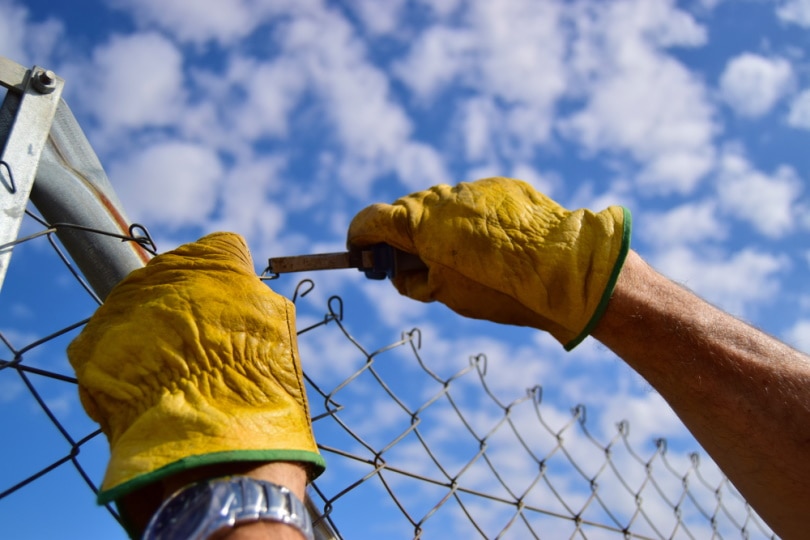
8. Eliminate Any Roof Access
The only way raccoons end up in your attic is through holes and gaps on your roof. Sealing these will do the trick, but for a more permanent solution, you should consider removing access to the roof.
Raccoons get up onto the roof by climbing nearby trees, vines, or poles. Removing the roof access will preclude the raccoons from getting up there. However, this doesn’t mean you should chop down all the trees near your house. A much better alternative would be to prune low-lying branches that allow easy access to the roof.
If it’s not too late, avoid planting vertical-growing trees or climbers near your house. Also, fix protective collars on your downspouts, so raccoons don’t use them as a ladder to your roof. Lastly, line your roof with roof spikes.
9. Install Motion Sensitive Sprinklers
Raccoons are a huge menace to homeowners with home gardens. A gaze of raccoons can clear your home garden in a matter of days. But there’s a humane way to keep these animals off your garden: motion-activated sprinklers.
These sprinklers will douse the raccoons with water the moment they set foot on your garden or lawn. The raccoons’ natural reaction will be to scamper for safety. It’s like killing two birds with one stone because you’re keeping the raccoons away while watering your garden at the same time.
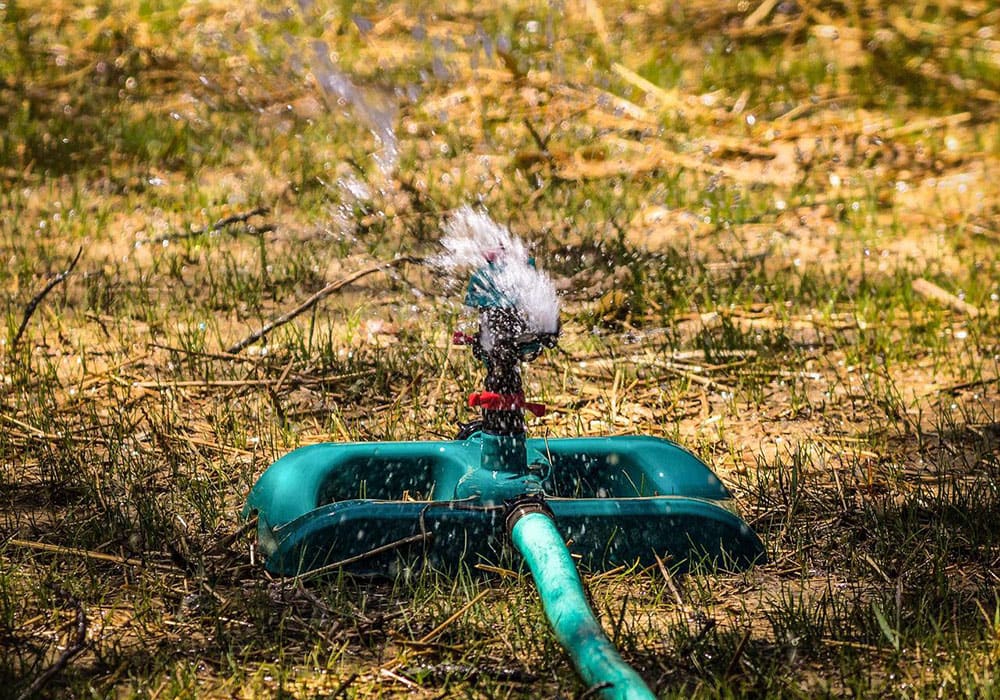
10. Use Loud Noises to Scare Them
Raccoons are just as intelligent as monkeys and other apes, meaning they’re just a step below humans on the intelligence ladder. However, their innate animal instincts still make them scared of strange, loud noises. So, making a racket is a pretty effective way to keep raccoons away from your home.
Of course, you won’t be making the noises yourself. A more sensible approach would be to buy motion-activated speakers from Amazon or other retail stores. These work great, especially if you play sounds made by the raccoon’s natural predators, like barking or roaring.
If you don’t want to annoy the neighbors, consider buying speakers that emit low-frequency sounds. These can only be heard by animals and won’t disturb you or your neighbors’ sleep.
How Dangerous Are Racoons?
Keeping raccoons out of your home takes a lot of work, but is it worth the trouble? How dangerous are raccoons anyway? The short answer is that they’re very dangerous, and here’s why.
The Risk of Rabies
Rabies is a viral disease that causes about 59,000 deaths every year. Symptoms of the disease include fever, paralysis, muscle spasms, and confusion. In severe cases, rabies can lead to death.
Raccoons transmit rabies via their saliva and fecal matter. When a raccoon bites you, there’s a chance that it may transmit the rabies virus to you. You can also get rabies by simply touching the raccoon’s feces.
That’s why you shouldn’t let a raccoon anywhere near your yard or garden. Your kids might accidentally come into contact with the raccoons’ fecal matter while playing outside.
Defensive Attacks
Raccoons typically run away when they sense humans nearby. However, when cornered, raccoons might attack.
Although no larger than an adult house cat, raccoons can pack a serious punch. They’ll attack with their sharp claws and teeth when they feel attacked. Don’t forget that these are stocky creatures with arms strong enough to burrow into the bare earth.
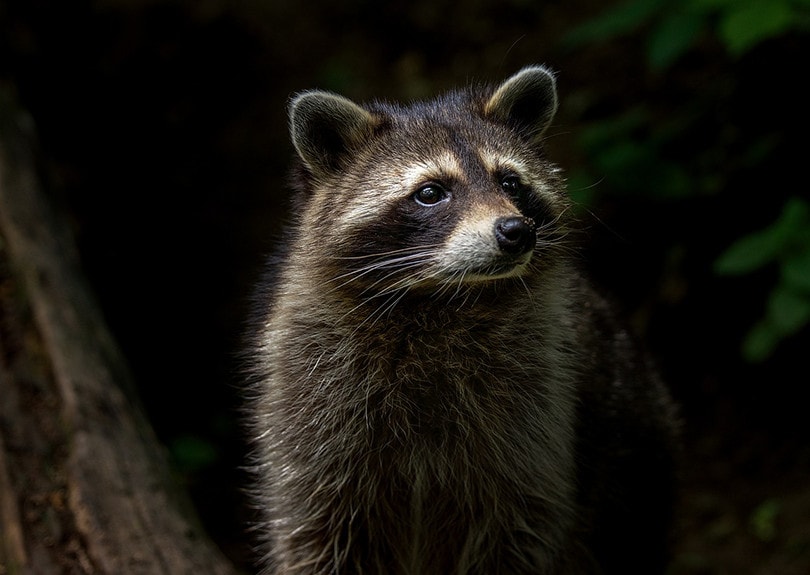
Property Damage
Raccoons can really do a number on your property if you let them run loose. Although they’re wild animals, raccoons are known to den inside homes and other residential areas. When they do, they create separate latrine sites. These are designated spots in your attic or backyard where they defecate and urinate.
What’s more, they can leave a huge mess when they sift through your trash. Not to mention destroying your roof and your garden.
Final Thoughts
Raccoons are dangerous creatures that don’t deserve any room in your home. Use the above steps to ensure a raccoon-proof home. Remember, if you’re having trouble keeping the raccoons out, you best leave it to the professionals.
Featured Image Credit: Alexas_Fotos, Pixabay
Contents


